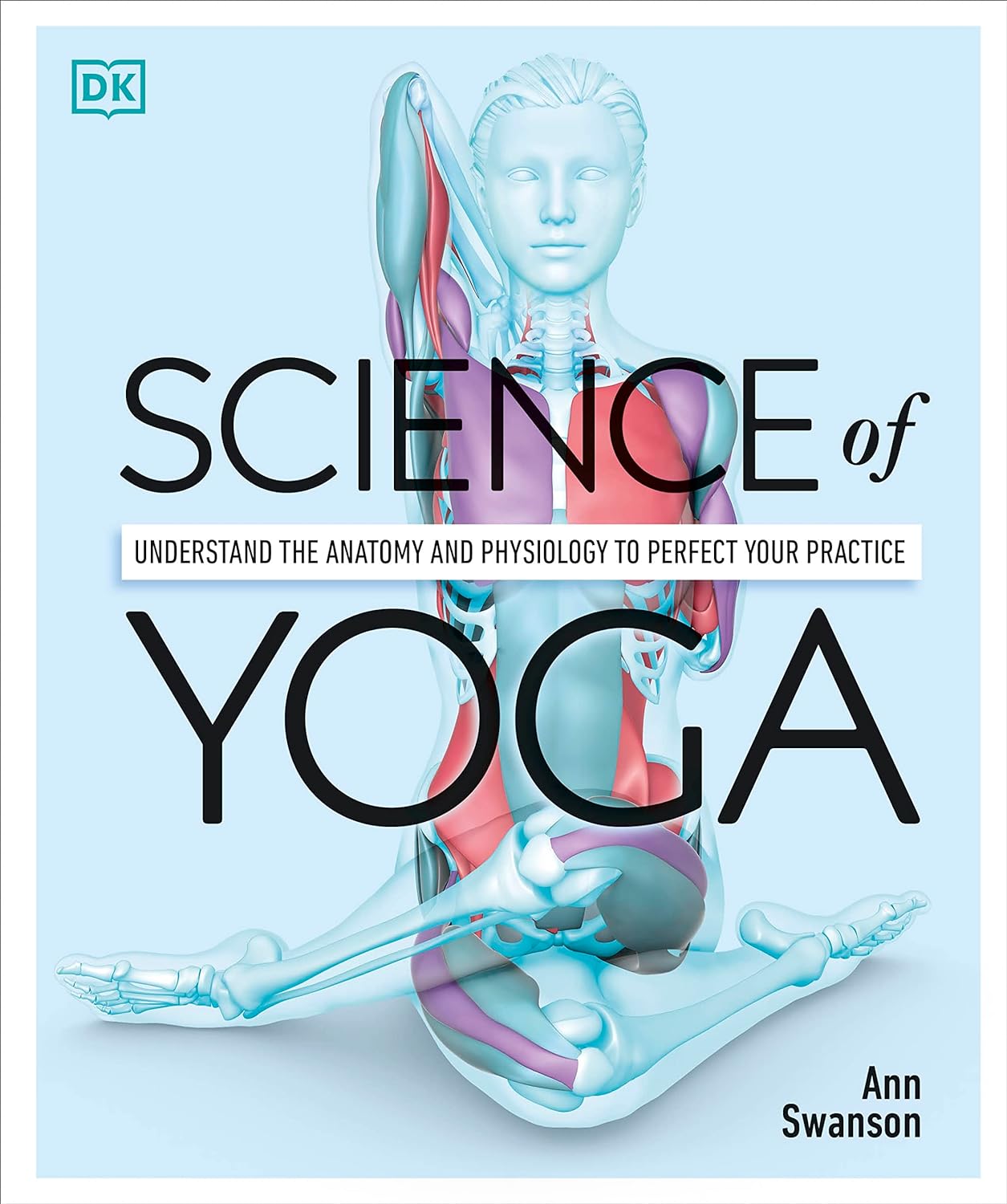Hatha Yoga: Traditional Postures for Wellness

Hey there, amazing readers! 🖐️ Just a quick note: yes, we know there are a lot of ads here. Trust us, we get it—it’s not the prettiest look, but they help us keep this blog alive and kicking. Those pesky little ads cover the costs of all the behind-the-scenes magic, from hosting and tech stuff to creating content we hope you’ll love.
We’re committed to delivering quality posts, and your support (even just sticking around despite the ads) means everything to us. So, bear with us, and thanks for helping us keep the good vibes rolling. Now, on to the fun stuff! 😉
TRANSLATE BUTTON AT THE END OF THE ARTICLE
Introduction to Hatha Yoga
Hatha Yoga is a branch of yoga that focuses on physical postures or asanas to balance the body and mind.
The word "Hatha" is derived from the Sanskrit words "ha" meaning sun and "tha" meaning moon, symbolizing the union of opposites.
This traditional form of yoga combines breathing exercises (pranayama) and meditation with various postures to promote overall health and well-being.
Hatha Yoga is often considered the foundation of all yoga styles and is suitable for practitioners of all levels, from beginners to advanced.
Benefits of Traditional Postures
The practice of Hatha Yoga offers a wide range of benefits for both the body and mind.
Regular practice can improve flexibility, strength, and balance, while also promoting relaxation and stress relief.
Hatha Yoga postures help to increase blood circulation, enhance digestion, and boost the immune system.
The meditative aspect of Hatha Yoga can improve concentration, reduce anxiety, and promote mental clarity.
This holistic approach to wellness can lead to a sense of overall well-being and a greater connection between the body, mind, and spirit.
Understanding Hatha Yoga Practice
Hatha Yoga practice involves a series of physical postures (asanas) that are held for a certain period while focusing on breath control and alignment.
These asanas are performed in a slow and controlled manner, allowing practitioners to develop strength, flexibility, and mindfulness.
The practice of Hatha Yoga is not only about the physical postures but also about cultivating a sense of self-awareness and inner peace.
By combining movement with breath, practitioners can create a meditative state that promotes relaxation and reduces stress.
Importance of Alignment in Postures
Alignment is crucial in Hatha Yoga postures to prevent injury and maximize the benefits of each pose.
Proper alignment ensures that the body is positioned correctly to avoid strain on muscles and joints.
It also helps to improve posture and body awareness.
By focusing on alignment, practitioners can deepen their practice and experience the full benefits of each posture.
Alignment in Hatha Yoga postures involves proper positioning of the feet, legs, hips, spine, shoulders, and arms to create stability and balance in the body.
Basic Hatha Yoga Poses for Beginners
For beginners, starting with basic Hatha Yoga poses is a great way to build strength, flexibility, and confidence in the practice.
Some fundamental poses to begin with include:
Mountain Pose (Tadasana): Stand tall with feet hip-width apart, arms by your sides, and palms facing forward.
Downward-Facing Dog (Adho Mukha Svanasana): Start on hands and knees, lift hips up and back, forming an inverted V shape with the body.
Child’s Pose (Balasana): Sit back on heels, lower forehead to the mat, and extend arms in front for a gentle stretch.
Warrior I (Virabhadrasana I): Step one foot back, bend front knee, and raise arms overhead, keeping hips squared forward.
Tree Pose (Vrksasana): Balance on one foot, place the sole of the other foot on the inner thigh or calf, and bring hands to heart center.
Intermediate Hatha Yoga Postures
Intermediate Hatha Yoga postures challenge practitioners to deepen their practice and explore more complex poses.
These poses require a combination of strength, flexibility, and balance.
Some intermediate poses to consider include:
Extended Triangle Pose (Utthita Trikonasana): Stand with legs wide apart, reach one hand to the floor or a block while extending the other arm up towards the ceiling.
Boat Pose (Navasana): Sit with knees bent, lift feet off the floor, balancing on the sitting bones while extending arms forward.
Camel Pose (Ustrasana): Kneel with hips over knees, reach back to hold heels while lifting chest and gaze towards the sky.
Revolved Side Angle Pose (Parivrtta Parsvakonasana): From Warrior II, twist torso towards front leg, bringing one hand to the floor and extending the other arm overhead.
Shoulder Stand (Sarvangasana): Lie on the back, lift legs and hips overhead, supporting lower back with hands while extending legs towards the sky.
Advanced Asanas for Wellness
Advanced Hatha Yoga postures require a high level of strength, flexibility, and concentration.
These poses challenge practitioners to push their limits and explore new depths in their practice.
Some advanced asanas to strive towards include:
Peacock Pose (Mayurasana): Balancing on hands, extend legs back and lift feet off the floor while keeping elbows close to the body.
Scorpion Pose (Vrschikasana): From Forearm Stand, bend knees towards head and reach feet towards the sky, arching back and opening chest.
Firefly Pose (Tittibhasana): Squat with hands on the floor, lift hips and extend legs out to the sides while balancing on hands.
Flying Pigeon Pose (Eka Pada Galavasana): From Crow Pose, extend one leg back and hook foot around upper arm, balancing on hands.
Eight-Angle Pose (Astavakrasana): Cross legs and arms, hooking one ankle behind the other wrist while balancing on hands in a twisted position.
Incorporating Pranayama in Practice
Pranayama, or breath control, is an essential aspect of Hatha Yoga practice.
By incorporating specific breathing techniques, practitioners can enhance their physical and mental well-being.
Some common pranayama techniques include:
Ujjayi Breathing: Inhale and exhale through the nose, constricting the back of the throat to create a gentle oceanic sound.
Nadi Shodhana (Alternate Nostril Breathing): Close one nostril with thumb, inhale through the other nostril, then switch to exhale through the opposite nostril.
Kapalabhati (Skull Shining Breath): Rapidly exhale and passively inhale through the nose while engaging the abdominal muscles.
Bhramari (Bee Breath): Inhale deeply, then exhale while making a humming sound like a bee, creating a soothing vibration in the head.
Sitali (Cooling Breath): Curl the sides of the tongue, inhale through the mouth, then exhale through the nose, creating a cooling sensation.
Meditation Techniques in Hatha Yoga
Meditation is a key component of Hatha Yoga practice, allowing practitioners to cultivate mindfulness, focus, and inner peace.
By incorporating meditation techniques, individuals can deepen their connection to the present moment and reduce stress and anxiety.
Some meditation practices to explore include:
Mindfulness Meditation: Focus on the present moment, observing thoughts and sensations without judgment or attachment.
Loving-Kindness Meditation: Cultivate feelings of love and compassion towards oneself and others by repeating positive affirmations.
Visualization Meditation: Imagine a peaceful scene or visualize positive outcomes to calm the mind and enhance relaxation.
Mantra Meditation: Repeat a sacred word or phrase silently or aloud to quiet the mind and center attention.
Body Scan Meditation: Bring awareness to different parts of the body, releasing tension and promoting relaxation from head to toe.
Tips for Safe and Effective Practice
To ensure a safe and effective Hatha Yoga practice, consider the following tips:
Listen to your body and honor its limitations, avoiding pushing yourself too far into poses.
Warm up before practicing with gentle stretches and movements to prepare the body for more challenging poses.
Focus on proper alignment in each posture to prevent injury and maximize the benefits of the pose.
Breathe deeply and mindfully throughout your practice, syncing breath with movement to create a meditative state.
Stay hydrated and nourished, fueling your body with healthy foods and plenty of water to support your practice.
Practice regularly to build strength, flexibility, and endurance, gradually progressing towards more advanced poses.
Rest and recover when needed, allowing the body time to recuperate and rejuvenate between yoga sessions.
Seek guidance from a certified Hatha Yoga teacher to ensure proper instruction and alignment in your practice.
Stay patient and compassionate with yourself, embracing the journey of self-discovery and growth through yoga.
Have fun and enjoy the process, allowing yourself to explore and experience the transformative power of Hatha Yoga.
Finding a Hatha Yoga Teacher
When seeking a Hatha Yoga teacher, it is advisable to look for someone who is experienced, knowledgeable, and compassionate.
A qualified teacher will guide you through proper alignment, breathing techniques, and meditation practices to enhance your overall well-being.
Consider the following factors when choosing a Hatha Yoga teacher:
Certification: Look for a teacher who has completed a reputable yoga teacher training program and holds a certification from a recognized organization.
Experience: Seek a teacher with years of experience in teaching Hatha Yoga, with a deep understanding of the practice and its benefits.
Teaching Style: Find a teacher whose teaching style resonates with you, whether you prefer a gentle and meditative approach or a more dynamic and challenging practice.
Personal Connection: Choose a teacher whom you feel comfortable with and who creates a supportive and nurturing environment for your practice.
Recommendations: Ask for recommendations from friends, family, or fellow yogis to find a teacher who comes highly recommended and has a positive reputation in the yoga community.
Conclusion: Embracing Hatha Yoga for Well-being
In conclusion, Hatha Yoga offers a holistic approach to wellness that combines physical postures, breath control, and meditation to promote balance and harmony in the body and mind.
By practicing traditional postures with mindfulness and intention, individuals can experience a wide range of benefits, including improved flexibility, strength, and mental clarity.
Aligning the body properly in each pose is essential to prevent injury and enhance the benefits of the practice.
Whether you are a beginner, intermediate, or advanced practitioner, incorporating pranayama and meditation techniques can deepen your practice and cultivate a sense of inner peace and well-being.
Finding a qualified Hatha Yoga teacher can offer guidance and support on your yoga journey, ensuring a safe and effective practice that nurtures your body, mind, and spirit.
Embrace the transformative power of Hatha Yoga and discover the path to holistic wellness and self-discovery.

The Enlightenment Journey is a remarkable collection of writings authored by a distinguished group of experts in the fields of spirituality, new age, and esoteric knowledge.
This anthology features a diverse assembly of well-experienced authors who bring their profound insights and credible perspectives to the forefront.
Each contributor possesses a wealth of knowledge and wisdom, making them authorities in their respective domains.
Together, they offer readers a transformative journey into the realms of spiritual growth, self-discovery, and esoteric enlightenment.
The Enlightenment Journey is a testament to the collective expertise of these luminaries, providing readers with a rich tapestry of ideas and information to illuminate their spiritual path.
Our Diverse Expertise 🌟
While our primary focus is on spirituality and esotericism, we are equally passionate about exploring a wide range of other topics and niches 🌍📚. Our experienced team is dedicated to delivering high-quality, informative content across various subjects ✨.
To ensure we provide the most accurate and valuable insights, we collaborate with trusted experts in their respective domains 🧑🏫👩🏫. This allows us to offer well-rounded perspectives and knowledge to our readers.
Our blog originally focused on spirituality and metaphysics, but we’ve since expanded to cover a wide range of niches. Don’t worry—we continue to publish a lot of articles on spirituality! Frequently visit our blog to explore our diverse content and stay tuned for more insightful reads.






